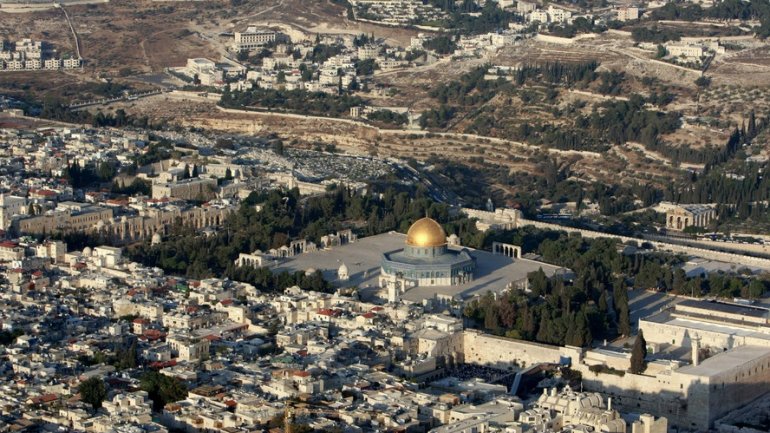Unesco adopts controversial resolution on Jerusalem holy sites
 foto: Reuters
foto: Reuters
Unesco, the UN’s world heritage organisation, has adopted a controversial resolution that criticizes Israeli actions around the Haram al-Sharif/Temple Mount complex in Jerusalem’s Old City – with Israel claiming it deletes Jewish ties to holy sites, reports The Guardian.
The final version of the resolution – which has sparked furious claims and counter-claims – passed easily on Wednesday after Israel pressed for a secret vote. Despite containing some softening of language following Israeli protests over a previous version, Israel continued to denounce the text.
Ten of the countries currently represented on the Unesco world heritage committee voted in favor, eight against and eight abstained in the Paris vote.
At the centre of the controversy has been the language used to describe parts of the holy site revered by both Muslims and Jews.
Israel says the resolution’s exclusive use of Arabic terms to describe parts of the site deliberately airbrushes out the Jewish connection to the site of the Second Jewish Temple – destroyed in 70 AD.
The US Democratic presidential candidate, Hillary Clinton, has weighed into the row, saying it was “disappointing and wrong” that Unesco was “considering a resolution on Jerusalem that fails to recognize and respect the deep and historic ties of the Jewish people to Jerusalem and its holy sites”.
Immediately after the vote, Israel’s ambassador to Unesco, Carmel Shama-Hacohen, criticized the committee’s stance, saying: “You have just adopted a [resolution] against historical truth and one that stands in complete and utter contradiction to all values.”
Palestinian officials insist that because the resolution refers to issues at Muslim places of worship it justified the language.
At the centre of the controversy are genuine concerns over both Muslims’ and Jews’ religious, cultural and historic attachment to the site – revered by Muslims as the Haram al-Sharif and by Jews as the Temple Mount – as well as its environs.
Home to the al-Aqsa mosque, the site is administered by the Waqf, a religious institution under the auspices of the Jordanian crown, which governs rights of visitation and worship, management and repairs under the so-called Status Quo agreement.
The latest version of the Unesco resolution represents Jordanian and Palestinian complaints over recent Israeli actions around the site, including archaeological excavations, tourist projects, damage to buildings and claimed lack of access for Waqf officials.
The perception that Israel was trying to alter the highly sensitive status quo – a charge denied by Israel – was one factor behind a deadly wave of violence targeting Israelis that began last autumn.
Unesco’s attempt to draw up a document on problems around the Old City and its holy sites, however, has become increasingly heated and polarized, with both sides using or omitting language in ways that have inflamed tensions.
Much of the the debate has swirled around how the sites are named – and in what language – with the latest version using the Jewish terms of reference for the Western Wall, and without quote marks.
International